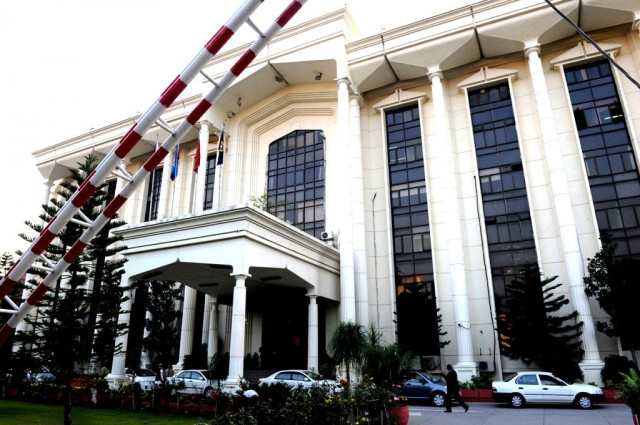Banking privacy laws and the FBR
FBR wants to indiscriminately access all banking data, says court system too slow to resolve tax evasion.

It may surprise most people to learn that the FBR already had quite a lot of powers when it comes to people’s bank accounts. PHOTO: AFP

It may surprise most people to learn that the FBR already had quite a lot of powers when it comes to people’s bank accounts. For instance, if it is able to demonstrate probable cause in a court of law, it can request banking records of any individual or business from as far back as it feels the need for. And, if a case of tax evasion is proven, the FBR does not need to politely wait for a person or company to pay what they owe: it can forcibly take the money away from their bank accounts if a person fails to comply with a demand to pay taxes.
One would think those powers would be more than enough for the FBR to begin a serious crackdown on tax evasion, but apparently that is not what the bureaucrats think. They argue, not unreasonably, that the current system requires them to go through a court system that is too slow. So, rather than advocating a fix to the speed of the court system, the FBR would like to bypass all checks and balances and obliterate any sense of financial privacy in Pakistan altogether, by indiscriminately accessing all banking data.
In the past, this newspaper has applauded the government’s attempt to use Big Data to catch tax evaders and we are not opposed to the idea of the FBR having access to banking records either. What we object to is the manner in which this was done: one line surreptitiously slipped into the budget speech by Finance Minister Ishaq Dar, with no details provided on exactly how much data the FBR would have access to and what safeguards will be taken to protect the privacy of individuals from unscrupulous officers.
Big Data is a reality and we are happy the government is thinking of ways to use it effectively. We just wish they would also consider ways to do so responsibly.
Published in The Express Tribune, June 18th, 2013.
Like Opinion & Editorial on Facebook, follow @ETOpEd on Twitter to receive all updates on all our daily pieces.














COMMENTS
Comments are moderated and generally will be posted if they are on-topic and not abusive.
For more information, please see our Comments FAQ